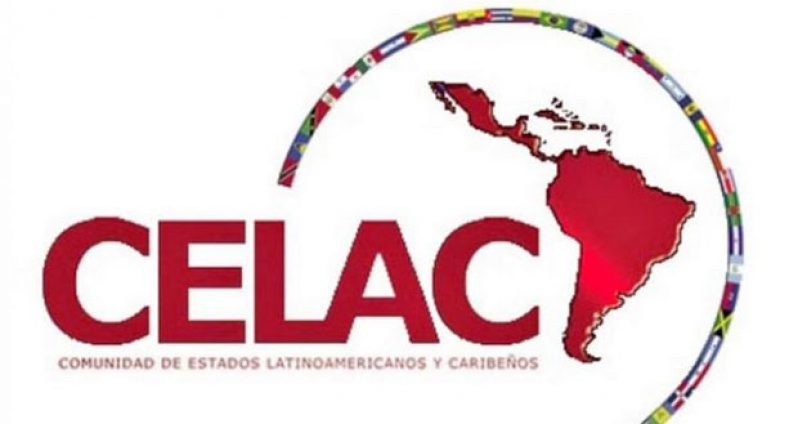THIS COLUMN was written as CARICOM Heads of Government and Foreign Ministers were returning home from participating in last week’s two-day second summit of the fledgling, but already well recognised influential Community of Latin American and Caribbean States (CELAC) in Havana, Cuba.
The final communiqué was not yet released but the ‘draft declaration’ highlighted firm commitment to ensuring the Region as a “zone of peace” and commitment to strengthening economic and cultural integration of all
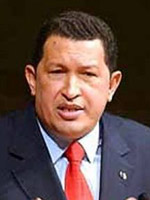
the 33 nations that comprise its membership.
It would therefore be interesting to learn what Caribbean Community Heads of Government—among them President Donald Ramotar–have to report to their respective country on the outcome of the summit.
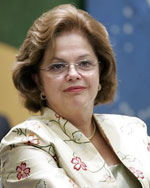
Inaugurated in Caracas in December 2011 with then President Hugo Chavez as host and one of the prime initiators, CELAC is defined as a “counterpart” to the Washington-based Organisation of American States (OAS) with the distinguishing difference that neither the USA nor Canada is among the 33 member states of the Caribbean/Latin American Region.
Zone of Peace’
Promoting closest possible cooperation, CELAC’s commitment to peaceful development was underscored by its end-of summit ‘Draft Proclamation’ recognising the Region as a “zone of peace.”

With Cuba as host and then formally handing over the rotating annual chairmanship to Costa Rica, the CELAC summit further highlighted the dismal failure of more than half a century of strategies and tactics by the USA– including clandestine activities launched from some nations of the hemisphere—to isolate Cuba which last month officially marked 55 years of the Fidel Castro-led revolution.

As if to dramatise the impact of CELAC and the diminishing influence of the OAS, both Secretary General of the United Nations (Ban Ki-Moon) and the Secretary General of the OAS (Chile’s Jose’ Miguel Insulza) were in attendance at the summit—the latter as an observer.
It was the first time, since 1962 when, under enormous “Cold War” pressures from the USA, Cuba was expelled from the hemispheric body—

(OAS)
JOSE MIGUEL INSULZA.
to which it chose not to return–that a serving OAS Secretary General had arrived in Cuba for a public event of international significance.
And, as if to further underscore continuing significant changes–political, social, economic and cultural—away from the domineering influence of the USA—Brazil’s President, Dilma Rousseff, took the opportunity of the CELAC Summit to formally inaugurate the first phase of Cuba’s modernised deep water seaport at Mariel, funded by her
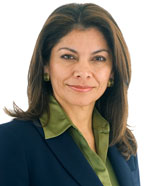
country at a cost of US$957 million.
UN’s Ban/China’s Xi
To say that was a practical manifestation of solidarity as Cuba continues to combat the negative consequences of half a century of the US economic blockade may be an understatement. But the UN Secretary General was ready with a very encouraging
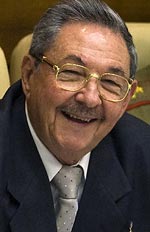
message of his own:
“It is especially meaningful,” Ban Ki-Moon told the summit, “to be in attendance on the anniversary of the birth of the great Jose Marti…He was an inspiration not only for this country’s independence, but for shaping the Latin American identity…”
Declaring that the Region continues to face some serious challenges, the Secretary General said he was, however, pleased to see a region “determined to tackle its obstacles together….This summit”, he added, “is proof of just that”. He pledged the support of the United Nations “in all aspects of our shared agenda.”
The CELAC summit, representing 33 nations with a combined population of some 600 million multi-ethnic, multi-cultural peoples, was a history-making event in various ways.
And President Xi Jinping of China—principal rival of the USA for competing political/economic influence in Latin America—was ready to hail on Thursday, in a congratulatory message to host President Castro, the decision in Havana to establish a “China-CELAC Forum.”
This Forum initiative is viewed as a prelude to CELAC’s already declared intention to access membership of the BRIC bloc of five major countries—Brazil, Russia, India, China and South Africa—whose economic agenda includes creation of a special bank to cater to specific needs of poor and developing nations.
The vibrancy of initiatives by CELAC in strengthening cooperation for economic and cultural integration could, in the assessment of informed hemispheric watchers, further marginalise the OAS which has traditionally been subjected to orchestrated political influence by successive administrations in Washington—even long after the expiry of the ‘Cold War.’
In this context, the birth and defined policies and programmes of CELAC mark a significantly new beginning for the peoples of Latin America and the Caribbean.
( Analysis by Rickey Singh)



.jpg)




